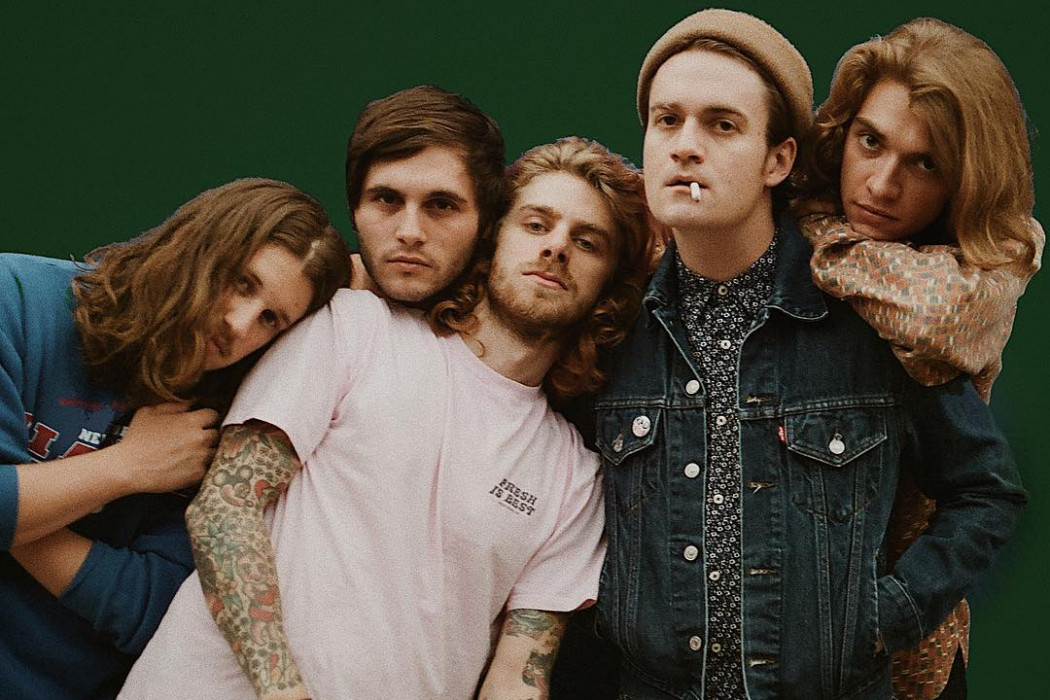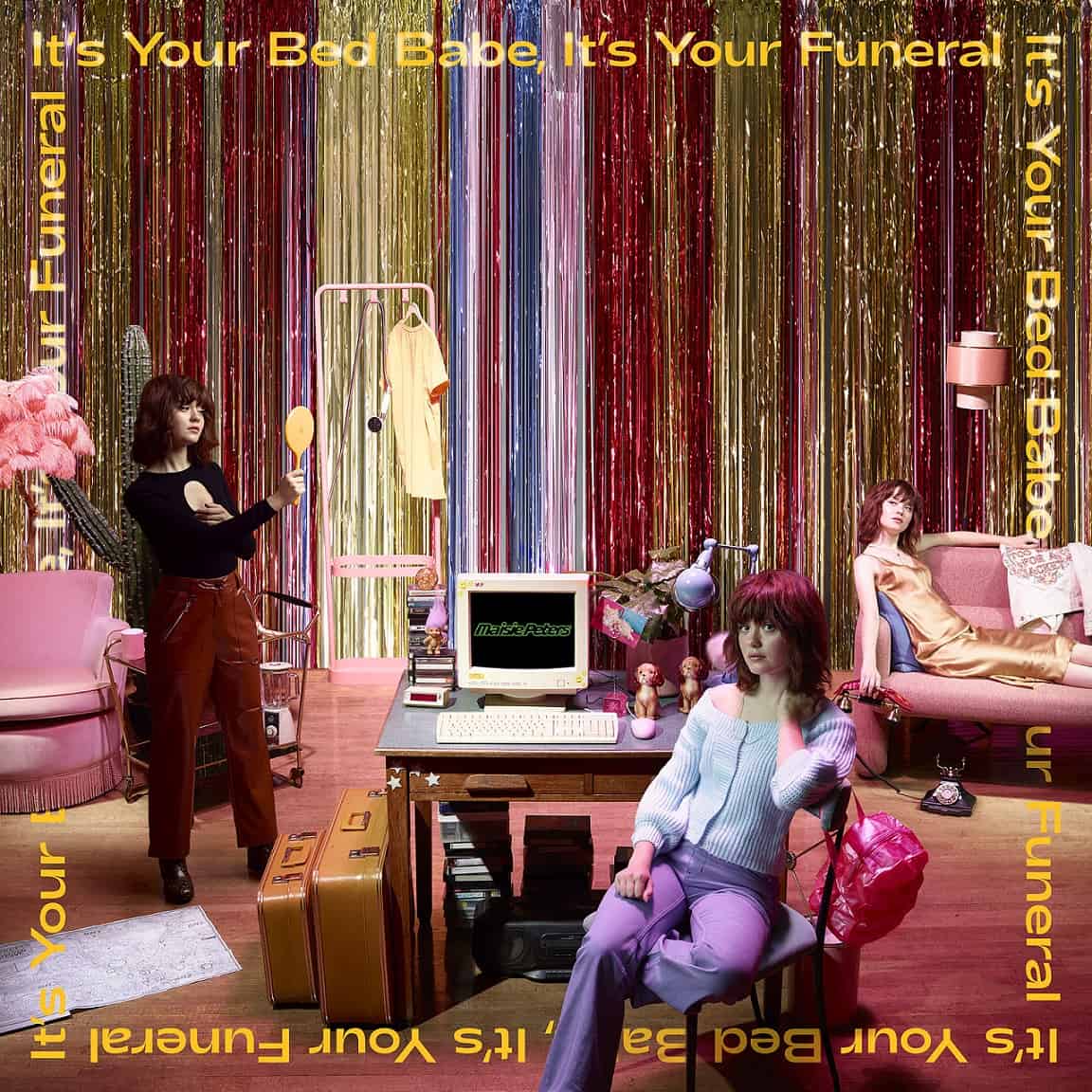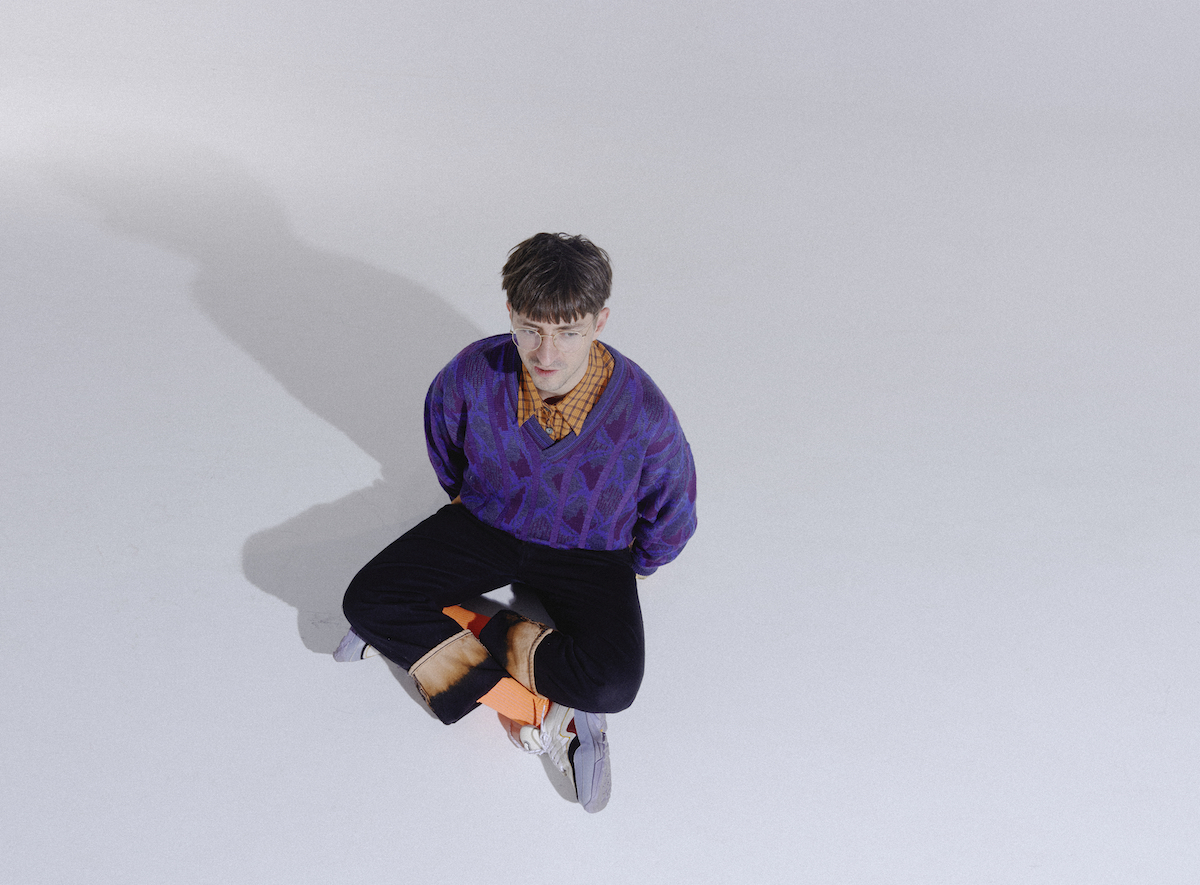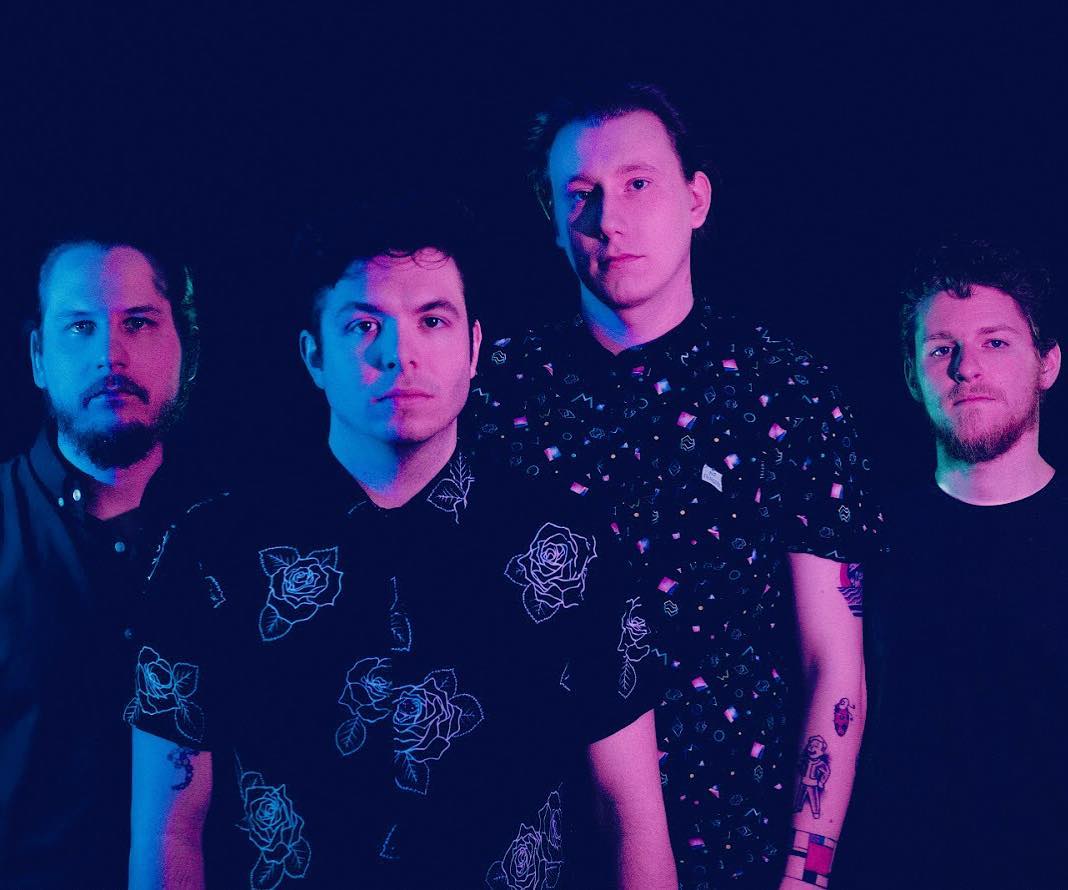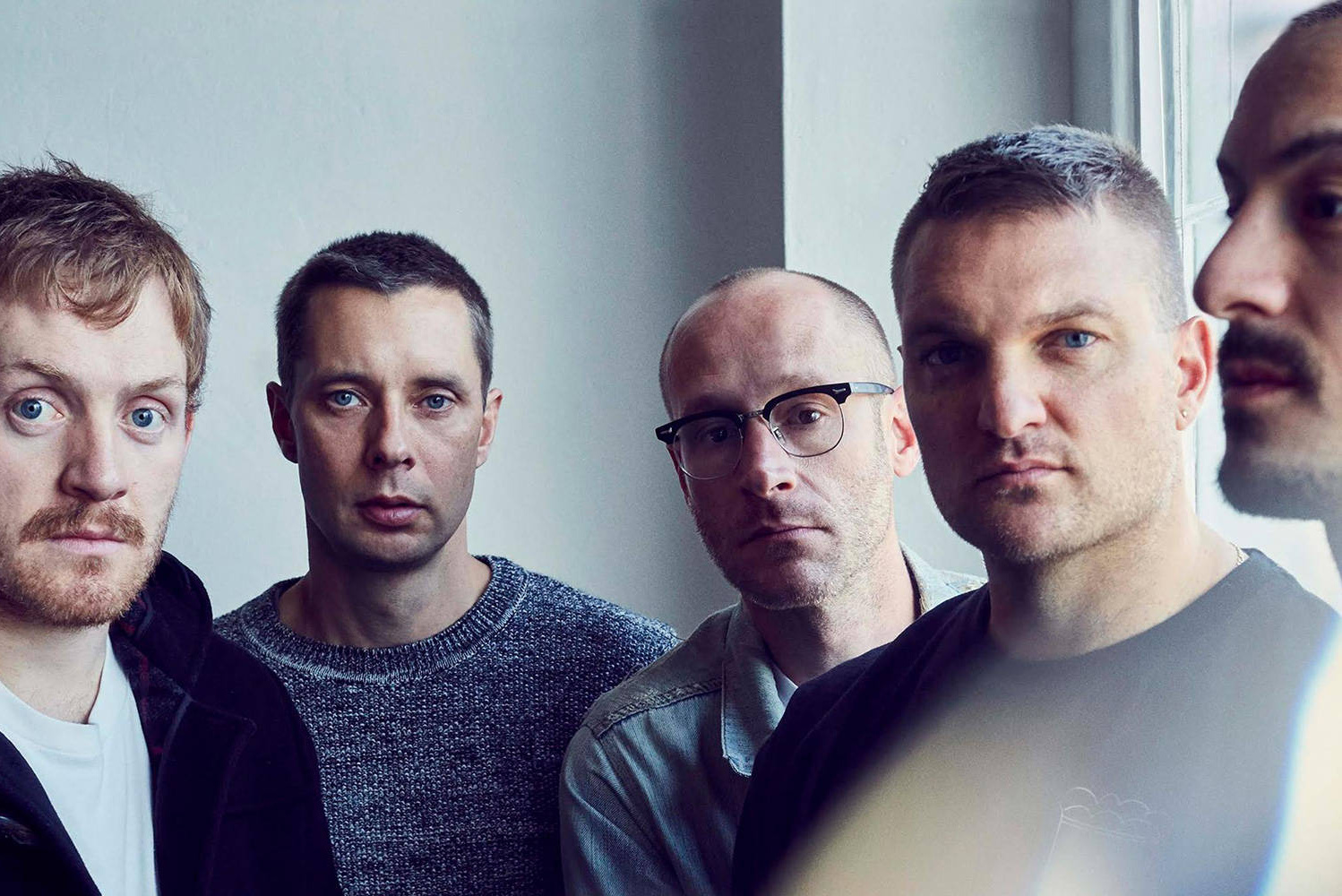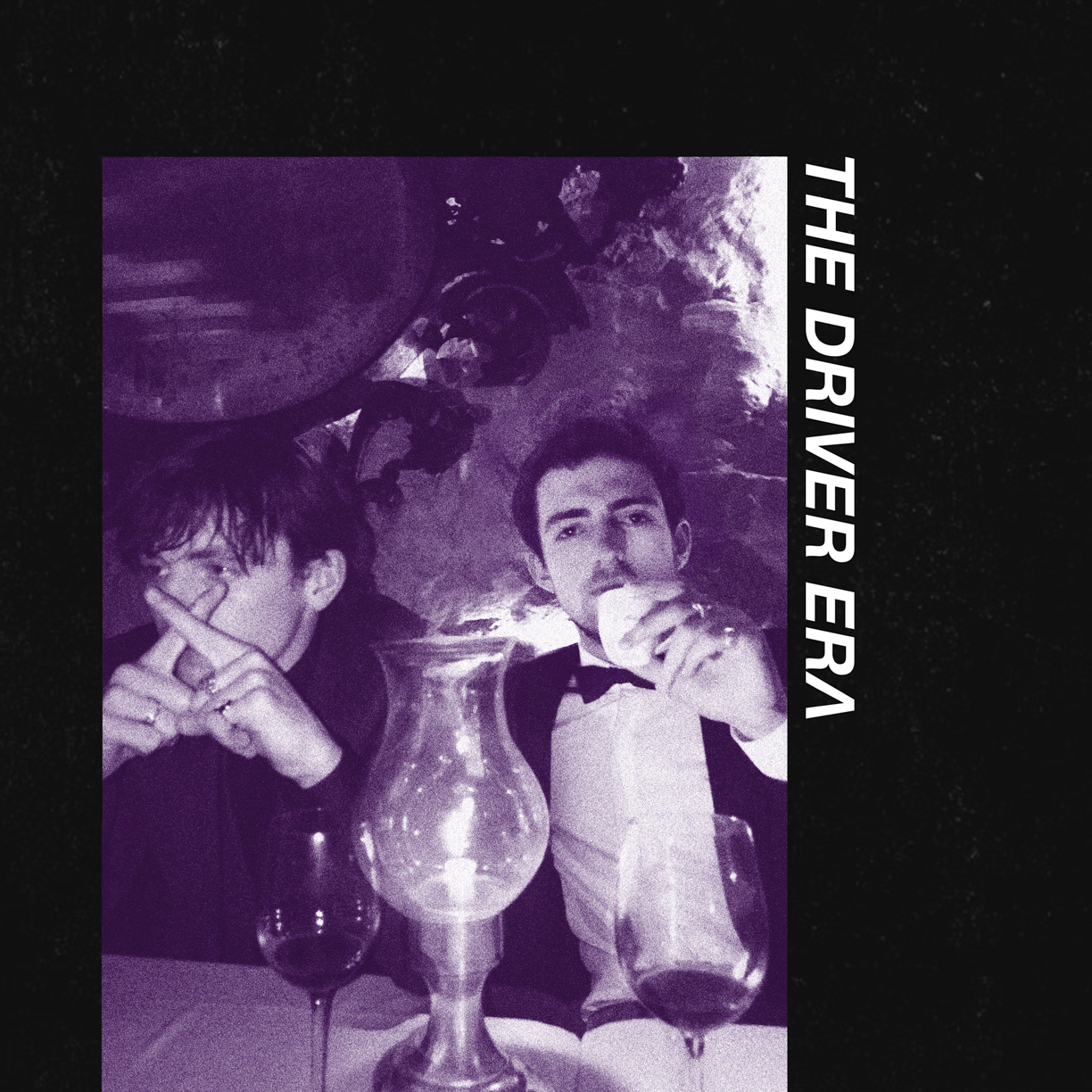Rad Horror oozes a striking give-no-fucks coolness one desires from a traditional rock band. If Rad Horror is rock-n-roll, then rock-n-roll is here to stay.
— —
“As a singer, I wanted it to be like, if I picked up an acoustic guitar, and play for people, what would I sound like?” Dylan Scott remarks. As the lead singer of LA-based rock outfit Rad Horror, this is a question that constantly comes to mind.

Rad Horror, a west-coast-by-way-of-east-coast five piece, is definitively making rock music cool again. The group, comprised of Scott, Jonathan Brunner, Anthony Purpura, Paul Kartelias, and Jack Gallner, have only put out a small handful of singles, but that’s not to say they haven’t already built an impressive name for themselves; they’ve successfully landed on a slew of heavyweight Spotify playlists with singles like “Dark Times” and “Stay Out,” including the coveted New Music Friday and New Noise playlists.
Rad Horror oozes a striking give-no-fucks coolness one desires from a traditional rock band. Despite their nonchalant aura, however, the band does not stray from wearing their heart on their sleeve, as exemplified in their raw lyricism. With Scott’s gravelly vocals, supplemented by wailing guitars and calculated drumming, Rad Horror’s reminiscing sound is nothing short of intoxicating. If Rad Horror is rock-n-roll, then rock-n-roll is here to stay.
“[It’s] an ode to our youth, bringing loud guitars and loud drums back to alternative music again, which was important to us,” Scott notes of the band’s sound. “All of a sudden there were a lot of synths in our old stuff, and we were like, this is getting out of hand, so let’s get back to our roots.”
Listen: “Stay Out” – Rad Horror
A CONVERSATION WITH RAD HORROR
Atwood Magazine: Do you usually write all of your songs together, or does somebody bring in a piece, and then you work on it?
Jonathan Brunner: It starts off with somebody who just has an idea, or has a riff, and we’ll all just build on it and think outside the box. Like, what can make us uncomfortable to write?
Dylan Scott: Yeah, it’s a little bit of vulnerability. Everybody writes, and we all kind of write as a group, so it’s interesting; it’s a really cool collaborative effort. It always feels really good to do that, as a band.
Do you start with instruments first, or do you do lyrics first?
DS: It depends, like, for example, on ‘Dark Times,’ it was the riff of the guitar part and the vocals at the same time, which is how we started that song. It’s just the beginning of the song.
JB: Then like, the main hook, you [Dylan] were just playing the rhythm part, and one of us just walked in and was like, [built] on it.
DS: It was kind of a loop of me singing this one part, and were like okay, how do we build around this? How do we make this an actual song? So, yeah, it’ll sometimes start with a vocal, or an actual lyric, or just the riff, or the combination together.
Listen: “Dark Times” – Rad Horror
Got it. Cool. So, is everybody from New Jersey?
Anthony Purpura: I’m from Long Island.
Okay, so, Jersey/New York – but you guys all live out west. How have both coasts kind of inspired the music that you make? Does it at all?
Paul Kartelias: I think it does.
DS: Well, the thing about Los Angeles is, you don’t find any rock bands out there. I think the big thing about it is, there’s not a lot of rock bands that are doing at least what we do. So that was kind of another thing, where we were like, “Okay, well this is cool, we love this.” It’s from our youth, it’s very 90s-inspired, you know, just off-the-cuff.
JB: Not really conforming to something.
DS: Yeah, not conforming to what everybody’s doing. Because like, everybody’s just doing this urban-leaning, hip-hop pop music, and we’re doing the complete opposite.
JB: Something that we’d always wanted to do when we were kids, like, “We want to be that fucking band.”
DS: Yeah. So I think like, moving to LA was important for us, because we saw what everybody was doing to try to become a pop star, and so we’re just like, let’s just do the opposite of what everybody else is doing. And, growing up here [on the east coast], has given us the chance to have the background of rock and roll music within us.
Do you find it harder to be a pure rock band out in LA? Or is it nice because you are one of the few that have that going?
DS: I think it’s difficult anywhere you go, to break a ceiling, as a rock band, which is crazy to say. You are – there is a glass ceiling, and the thing is, we’re determined to break it, there’s no doubt about that. We feel very confident that we will.
AP: And it always works out at shows too, because we always sound so different from everyone we play with, so everyone’s just like, ‘What is this? This is cool.’
JB: Yeah, and they see us as like, true to ourselves too.
DS: It’s just kind of like, no bullshit, a lot of debauchery; we just play and have a good time.
PK: We have a good time. We’re not trying to be someone that we’re not.
JB: We just do it more for us, and if people like it, they like it.
We’re not really doing anything different, you know, it’s music. We’re just doing it in our own way, with our own influence.
That’s how it should be! Because if you’re not enjoying what you’re doing, then why are you doing it?
DS: Absolutely.
JB: Right, we could make a living doing that –
PK: Just make a hit song.
AP: We’ve all been in different bands before that have done that, and it never felt the same.
You’re like a machine at that point.
DS: Yeah, we’ve all been in bands before where we’ve gotten to a point where you’re forced to write a hit song, and without it, it’s like, okay, your career’s over. So we wanted to make a pact this time where it was like, we’re not trying to write a hit song, and we’re not trying to reinvent the pop music wheel, or anything like that. We just want to play music and have people come to the shows.
Jack Gallner: We’re not really doing anything different, you know, it’s music. We’re just doing it in our own way, with our own influence.
But that’s what makes it different, is you’re doing it in your way!
PK: Yeah, of course.
So, you’ve all been in different bands – how have those kind of brought you to where you are now?
AP: Well, we all met each other.
DS: Yeah, we all met each other through them. We would play shows together in Manhattan, so we were always in a kind of local scene together. But then our bands got sizeable enough to be touring bands, so we would meet up at different tours or festivals, and stuff like that. Then, when I moved to LA, these guys weren’t playing in their old band anymore, and I wasn’t playing in my old band anymore, and we were like, ‘Well let’s just do this together,’ and it worked out. But it feels good to have experience as a touring act; I think that’s important. You learn from a lot, and all of us have tours.
AP: It’s the do’s and don’ts of being in a band.
JB: Hopefully we’re doing it in the “right” way, but there’s no guidebook. So, we’re just doing it the way that we always wanted.
PK: Exactly. We’re having a good time, with no stress. Or, as little stress as possible.
JB: And we can all hang.
PK: We can all hang.
Well as long as you’re getting along with everybody!
DS: Well like, we hang out every day.
Do you live together?
DS: Some of us do.
JB: But we’re together almost every day, until like 5 in the morning.
So do you have a plan to put out an EP or an album soon?
DS: Yeah, so it’s done; the EP is done and finalized. So we’re excited about that. We’re excited that “Dark Times” was put on New Music Friday on Spotify; as a rock band that was a huge thing for us. We’re excited to put out the new stuff that are linear with that.
AP: When you listen to them all together, too, they all just flow.
DS: Yeah, they all make sense together.
Does it tell a specific story? Is it like a narrative threading through the whole thing?
DS: No, there’s no narrative. All the lyrics I write are typically just about my life in general; you could tie everything together and be like, ‘Well this makes sense, he said this in this song, and then he said this in that song.’ There is always a narrative, but it’s about my life.
So it’s not really on purpose.
DS: No, it’s not on purpose, I’m not writing a short story.
So not like American Idiot.
DS: Exactly, no. It’s not a concept album or anything.
JB: It’s not going to get a play out of it.
You’re not going to get a musical out of it?
JB: … Maybe.
AP: It’ll be the saddest musical you ever went to.
DS: Maybe. I mean, Emo On Ice…
AP: That’s genius.
PK: Emo On Ice is gonna come out towards the end of next year.
You can bookend the year with the EP and the show.
DS: It’s gonna be good.
So, of the stuff you’ve put out so far, do you have a favorite lyric that you typically attach to more so than another?
DS: I can never answer this question.
PK: I said it from day one, my favorite is “I wouldn’t be lying, you know, because I tell the fucking world.”
AP: I like “Choke on your sins.”
DS: Yeah, that chorus is cool. We have a song called “Only When You’re Lonely,” and that one’s cool. It’s like, “Let somebody else take your feet off the ground / if God is so damn wise then why am I still around / choke on your sins / tasting bitterness / the voice in my head sings me to bed every night.”
That’s poetic; it’s cool.
JB: In “Teenage Love,” I like, “Turn the record off and tell me you’ll be alright without me.”
DS: Yeah. And I mean, I think there’s a lot that people can relate to on the new EP that’s going to come out. It’s very nostalgic in a way where it’s like, the lyrics are all nostalgic to my youth and the things I’ve dealt with in my 20s that have shaped me and ruined me and all of that. So I think there’s something that people can relate to on every level, which I think is cool.
So why does music matter to you? Why do you think it’s important that you’re doing music?
JB: it’s the only thing I know how to do.
PK: I would be miserable without the band.
DS: Well, it’s not important, I guess. It’s like, I guess we could do without it, but I’d just be in fucking misery more than I already am. So it’s like, I don’t know, it’s imperative to my lifestyle. It’s imperative to all of our lifestyles, I think. Just like, the way we grew up, it was just like, ‘this is what you do, and if it doesn’t work out, you’re just going to keep fucking figuring out how to do it.’
PK: There was no plan B.
DS: It became a part of our life and our culture that it was like, you surround yourself with it, and you’ll never be out of it.
AP: And I don’t really know what to do if I didn’t do it now.
DS: It’s more imperative than it is important.
…We’re just a bunch of fucking dudes playing fucking rock and roll music. If you like it, you like it; if you hate it, that’s awesome too.
I like that; that’s a good way to put it. And you’ve had some success online, with New Music Friday, and with streaming numbers and everything – how would you measure your success? I know it’s subjective, and I know it’s a hard question, but based on everything that’s happened so far, do you think that it’s harder as a band making the type of music that you make, to have ‘success’?
DS: So like, monetarily, it is a bit more difficult to do. I find it way more rewarding playing in a band with a group of people that are cheering each other on. You know, not taking the easy way out is a very important thing for me anyway, and to stick to what I truly believe in, because there’s so many people, especially in Los Angeles, that don’t do that at all. They don’t stick to what they really love; they’re just doing whatever it is that will make them money or famous.
JB: Just looking for the short-term.
It’s the short-term gratification versus the long-term goals.
DS: Exactly. So for us, with long-term goals, you know, it’s like, we want to build a following of people that love to see our band, and connect to everything we say, and connect to the culture that we bring to the shows every night. We want to sell out rooms, sizeable rooms; in the next couple of years, we hope to be selling out like 5,000-cap rooms, and touring all the time. And it’s a huge undertaking, especially being a straight-up rock band, but we believe that it’s very, very possible, and we feel very strongly about it. And the response that we’ve gotten so far has been very positive.
Have you guys toured much at all?
DS: Not as Rad Horror. It started out very differently, as like a solo project, and we kind of took everything down from when it was a solo thing for just me. It had started as just a solo thing, and you know, I do a lot of pop production stuff, and it’s fun for me. I was just kind of doing it and I just kind of put it out, but like, once I hooked up with these guys, it was like, “Well let’s do what we really want to do.” Just be a rock band again. It just felt better. And everything that we talk about and everything that we love to listen to was not at all what we were attempting to do.
You’ve played shows though, in LA.
DS: We have played shows.
JB: We do them like once or twice a month.
DS: And it’s always a great turnout in LA, which is great, and we have a lot of great supporters there.
DS: And we never had an official drummer, but Jack has become our official drummer. It’s kind of cool, because he grew up in Philly—
You grew up in Philly?
JG: I’m like a split of east and west coast.
DS: But it’s kind of cool to have somebody else from where we’re from, and be in the band.
Very cool. So to wrap up, what is something that you want people to know about Rad Horror? What do you want people to know about the band, and remember you by if they’re going to think about Rad Horror?
PK: Just a bunch of cool guys.
JB: I don’t know – just that we’re real-ass dudes.
DS: We’re just a couple of white trash dudes just playing fucking music.
AP: Just a bunch of dirtbags.
These are great answers.
DS: I’m not trying to take anybody away and say that we’re the next fucking coming of Jesus Christ, because that’s far from the fucking truth. But we’re just a bunch of fucking dudes playing fucking rock and roll music. If you like it, you like it; if you hate it, that’s awesome too. I don’t give a fuck.
— — — —

Connect with Rad Horror on
Facebook, Twitter, Instagram
Discover more new music on Atwood Magazine
photo © Meghan Cummings

